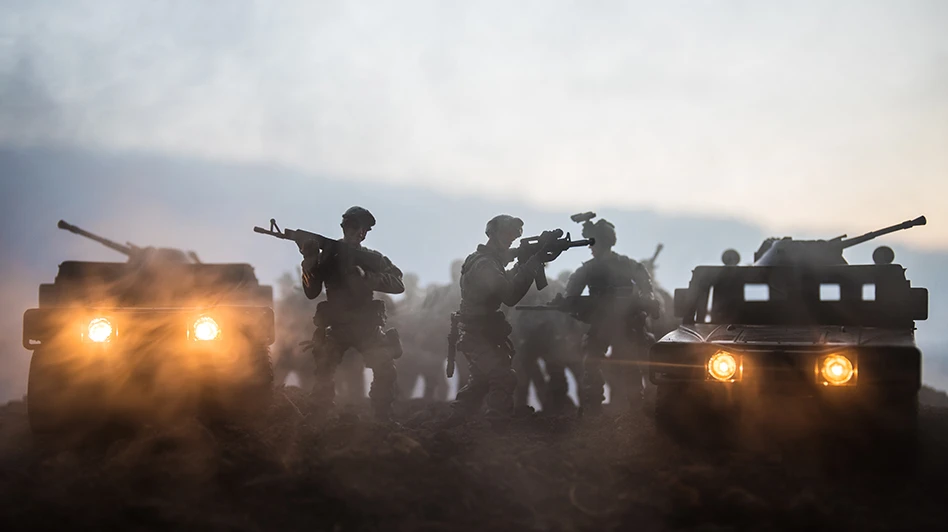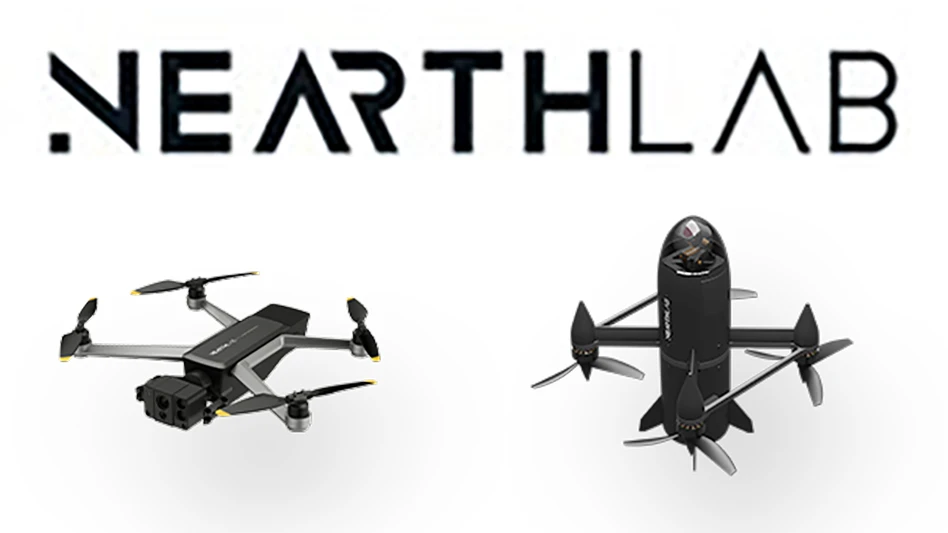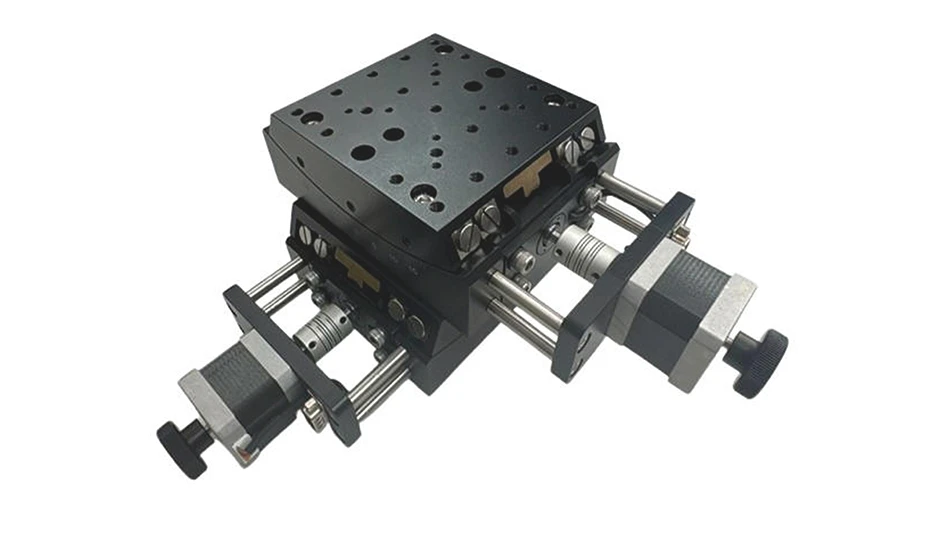
AdobeStock_248458202 | zef art
The global defense outlook showcases the defense budget of 30 countries for the period 2023-2033. The cumulative defense budget is valued to be $29,031.67 billion for the period 2023-2033. The global defense market is expected to be driven by geo-political activities, technological investment in autonomous and cyber capabilities, the emergence of public and private defense industries, and contracts by the national governments, among other factors.
Global defense outlook: market lifecycle stage
The global defense market is in the maturity stage of its life cycle, characterized by a consolidated industry, slowing growth, and increased competition for a shrinking pool of defense spending.
Impact
The defense industry is responsible for producing the equipment and technologies that are used by military forces around the world. One of the primary effects of the defense market on the global defense scenario is that it drives innovation and technological advancement. Companies that compete in the defense market are constantly developing new and better ways to protect soldiers, vehicles, and installations, as well as to detect, track, and engage enemy targets. This innovation helps to ensure that military forces are better equipped to confront the challenges of modern warfare. The defense market also helps to shape alliances and partnerships between countries. Countries that purchase defense equipment from a particular supplier often develop close ties with that supplier, which can lead to increased cooperation on other issues. Additionally, the defense market can create dependencies between countries, as some countries may rely on others for critical military capabilities. Finally, the defense market can have an impact on global economic and political stability. Defense spending represents a significant portion of many countries' budgets, and the health of the defense market can have implications for government finances and employment. Additionally, the proliferation of advanced defense technologies can create security challenges, as countries may seek to acquire these technologies for their own military programs.
Overall, the defense market is a critical component of the global defense scenario, and its size, health, and trends can have far-reaching implications for countries and international security.
The report: Defense Outlook - A Global and Regional Analysis: Focus on Key Enabling Technologies, Geo-Political Risks, and Country - Analysis and Forecast, 2023-2033 is available from ResearchAndMarkets.
Country analysis
- U.S.
- China
- Russia
- India
- Germany
- Australia
- U.K.
- Saudi Arabia
- France
- South Korea
- Japan
- Italy
- Canada
- Ukraine
- U.A.E.
- Turkey
- Israel
- Poland
- Brazil
- Taiwan
- Netherlands
- Spain
- Singapore
- Algeria
- Indonesia
- Oman
- Kuwait
- Colombia
- Pakistan
- Norway
Recent developments in the defense industry
On April 20, 2023, Rheinmetall Defence and Lockheed Martin entered into a memorandum of understanding (MOU) to collaborate on a tailored solution to provide Germany with a unique rocket artillery system, maximizing existing and combat-proven components produced in Germany.
On April 20, 2023, BAE Systems signed a contract with Ritek AS to produce two new CV90 variants for the Swedish Armed Forces. The work would be carried out in cooperation with BAE Systems Hägglunds, with the delivery scheduled between 2023 and 2027.
On April 19, 2023, the U.S. Defense Advanced Research Projects Agency (DARPA) awarded BAE Systems with a $8.3 million contract to develop an advanced autonomy system to speed operational planning under the Strategic Chaos Engine for Planning, Tactics, Experimentation, and Resiliency (SCEPTER) program. The program is designed to develop machine-generated strategies, evaluated within trusted simulation environments with thorough human review.
On April 13, 2023, Boeing unveiled its Protected Wideband Satellite (PWS) design featuring Boeing’s Protected Tactical SATCOM Prototype (PTS-P) payload hosted aboard the U.S. Space Force’s Wideband Global SATCOM (WGS)-11 spacecraft with automated anti-jam capabilities to stay connected in a contested environment.
On April 13, 2023, Boeing and the Defense Acquisition Program Administration (DAPA) of the Republic of Korea (ROK) signed a memorandum of understanding (MoU) to jointly research, develop, and market advanced weapons systems.
On April 12, 2023, Saab signed a contract with the Swedish Defence Materiel Administration (FMV) for the support and maintenance services for the JAS 39 Gripen C/D fighter aircraft. The order is valued at $29.93 million and ensures continued operation and a cost-effective solution regarding the maintenance and availability of the system.
On February 14, 2023, Thales Australia partnered with RGM Maintenance (RGM) and Queensland SME to help optimize and advance specialized heavy vehicle maintenance and regional access to services and maintenance of Land Materiel for the Australian Defence Force (ADF).
On March 29, 2023, the French Navy’s Lorraine multi-mission frigate was enhanced with air defense capabilities (FREMM DA) which successfully fired the Aster 30 air defense missile.
On March 28, 2023, the NATO Support and Procurement Agency (NSPA) ordered an additional Airbus A330 Multi-Role Tanker Transport (MRTT), increasing the Multinational MRTT Fleet (MMF) to 10 aircraft.
On January 10, 2023, Airbus and VDL Group signed a partnership for the manufacturing and development of a laser communication terminal for aircraft, known as UltraAir. The two companies will have scheduled the preparation of a demonstration of the prototype’s first flight test in 2024.
Demand - Drivers and Limitations
The following are the drivers for the global defense market:
- Rising procurement of multi-mission helicopters and fighter jets to have positive impact on market
- Increasing penetration of autonomous systems in military applications
The following are the challenges for the global defense market:
- Long gestation periods and high import dependency for procurement of defense equipment
- High manufacturing cost associated with integration and implementation of air and space systems
The following are the opportunities for the global defense market:
- Rise of internet of military things and era of digital battlefield: future and its potential
- Ageing fleet
Key companies profiled
Lockheed Martin Corporation
- Raytheon Technologies Corporation
- The Boeing Company
- Northrop Grumman Corporation
- BAE Systems
- Airbus S.A.S
- Thales Group
- Embraer SA
- Leonardo S.p.A.
- Textron Systems Aviation
- Dassault Aviation
- General Dynamics
- Saab AB
- Tactical Missiles Corporation
- MBDA Missile System
Latest from Defense and Munitions
- Curtiss-Wright, Sintavia deliver first submarine component using additively manufactured impeller
- Molex completes AirBorn acquisition
- KYOCERA AVX's CR Series high-power chip resistor
- U.S. Navy selects X-Bow Systems to modernize, automate energetics industrial base
- Rivada tapped for Virtual Network Operator contract with U.S. Navy
- Abaco Systems' rugged NVA2102xX card
- IMTS 2024 Booth Tour - Niigata
- What will 2025 look like in the manufacturing industry?





